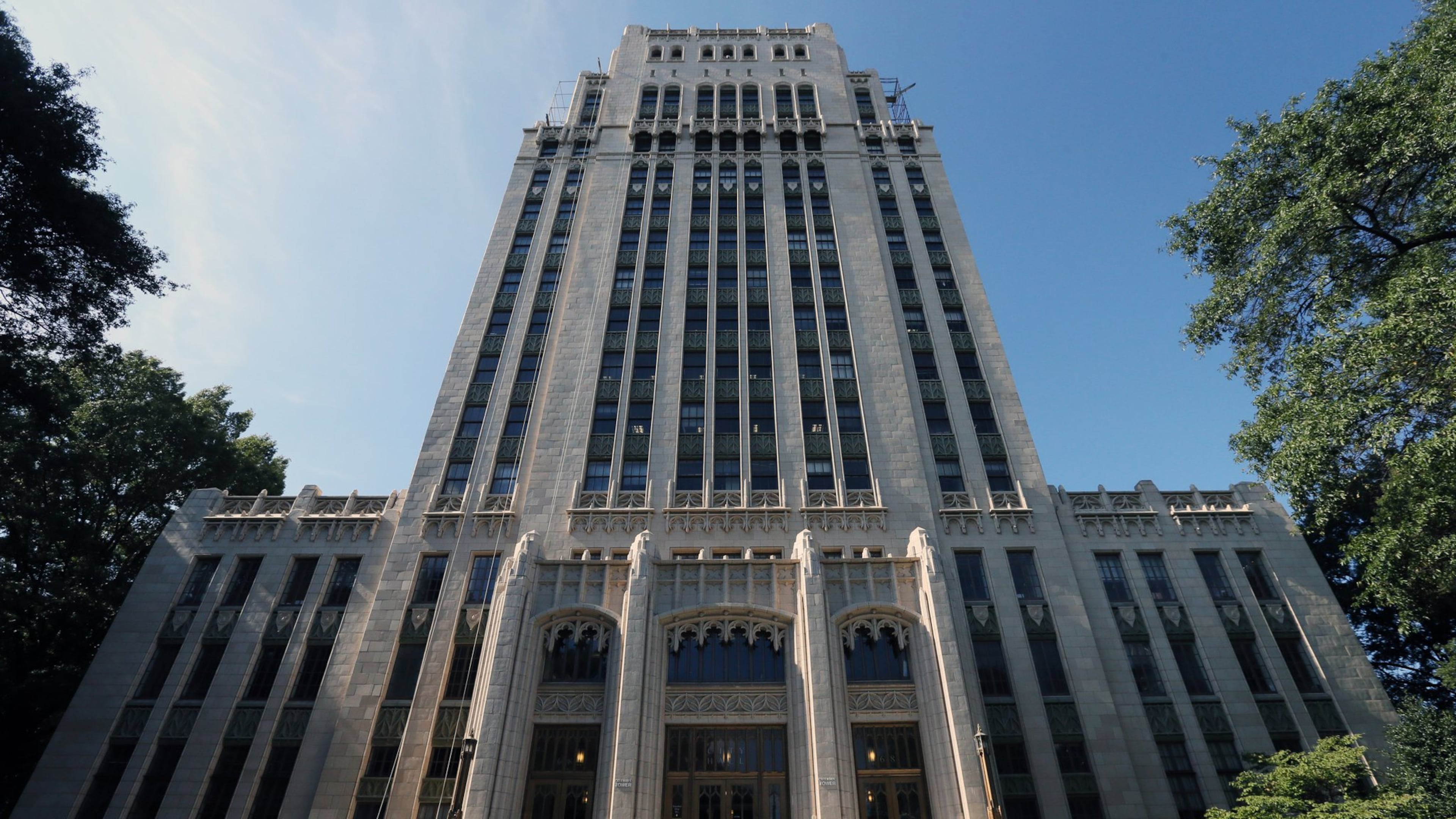Atlanta Office of Inspector General has investigated 32 complaints in first 18 months

Atlanta Inspector General Shannon K. Manigault released a bombshell report this month that alleged Kasim Reed’s administration misled the City Council and the public about the use of tax dollars in three instances when the former mayor said his personal finances were used to repay the city or make charitable donations.
But that report is the only instance in which the city’s newest watchdog agency has made significant headlines during its first 18 months of operation.
The IG’s compliance division — created to prevent and investigate fraud, waste, abuse, and misconduct in city government — has received at least 83 complaints about alleged misconduct. The office has initiated at least 32 probes, with the majority of them still open.
The Reed investigation is the first closed case to allege improper conduct, according to reports obtained by The Atlanta Journal-Constitution through the Georgia Open Records Act.
The allegations investigated in the seven closed-case reports obtained by the AJC range from former mayor Keisha Lance Bottoms improperly blocking a resident on Twitter, to the city withholding financial disclosure documents from the public.
While no wrongdoing was found in any of those cases, they nonetheless reflect some of the issues the office investigates or proactively hopes to prevent.

“My vision for the office is to perform three core functions,” Manigault said. “Prevention of misconduct before it occurs, investigation of potential misconduct, and then enforcement.”
This year, the IG debunked allegations about a strip club using threats and payoffs to obtain a liquor license from Atlanta’s Licensing and Review Board. The IG also found no evidence of the licensing review board abusing its authority to support a restaurant.
Additionally, the IG did not substantiate a complaint alleging the leader of a neighborhood association and a community trust fund board member had stolen $25,000; nor did it find evidence of bias involving a software contract bid, or that Atlanta was withholding financial disclosure documents for city officials and employees.
Atlanta City Council is considering a resolution requiring the IG to present quarterly compliance reports to the lawmakers, but explicit details on pending investigations are inaccessible to the public.
Manigault left her job as a New York City Inspector General to fill Atlanta’s IG role in January, 2021. The New Jersey native was the only employee in the Compliance Division at that time.
Today, Manigault manages 13 investigators with experience from local and state law enforcement agencies nationwide. Her office’s first budget of $686,000 grew to more than $2.9 million in fiscal year 2022. And her office is moving to a dedicated space downtown at 185 Ted Turner Drive.

The Office of the Inspector General consists of three divisions, though Manigault only directly supervises two. Aside from compliance, she also manages Independent Procurement Review Officers, which previously operated under Auditor Amanda Noble. They inspect city solicitations worth $1 million or more. Jabu Sengova oversees the city’s Ethics division, which advises, trains, investigates, and enforces Atlanta’s Code of Conduct, in addition to overseeing financial disclosures.
Atlanta’s charter empowers the IG to issue up to $1,000 in sanctions. The office can also refer cases of wrongdoing to the city solicitor, who could then take alleged violators to municipal court in an effort to charge them with up to $1,000 in fines and six months behind bars. City employees could face an unpaid suspension, demotion or termination. Vendors could face contract suspensions, disqualification or debarment from work with the city.
“This is exactly what we wanted to create,” said Councilman Howard Shook. “Something with teeth.”
Origins of the IG
In 2002, Atlanta Mayor Shirley Franklin spearheaded the creation of an independent ethics office following the allegations of misconduct under the administration of her predecessor, Bill Campbell. She also hired the city’s first independent auditor after Campbell refused to do so, even though the office was created during his tenure.
Years later in 2017, as details emerged about corruption in Reed’s administration, then-Sen. Vincent Fort proposed state legislation to create an Inspector General’s Office in Atlanta.
“The most important thing was that it be independent of the legislative branch and the executive branch,” said Fort, who also wanted the IG to be empowered to make criminal referrals when needed.
The measure passed Georgia’s Senate, but Fort said Reed’s administration and his lawyer successfully lobbied the measure to death in Georgia’s House of Representatives. Nonetheless, with the federal investigation of City Hall raging on, the idea of fighting corruption with an independent IG took hold with several candidates in the 2017 mayoral election, including then-councilwoman Bottoms.

The city council and Mayor Bottoms spent a year debating how to properly create a new anti-corruption office. In early 2019, Bottoms created a committee to study the government’s ethics, transparency and compliance. At the same time, the council created an independent compliance office.
By October 2019, amid news of guilty pleas and indictments of high-ranking city officials and contractors in federal court, the Bottoms committee advised the city to create an Inspector General position. The entire city council supported that idea, and the compliance office was eventually placed under the IG’s oversight.
But the council delayed the creation of the office after Bottoms in January 2020 said the IG should oversee ethics and audits, spurring those agencies to voice concerns about an erosion of their autonomy. Critics also accused Bottoms of retaliation because those offices previously investigated how she circumvented city procedures to hire her campaign staff.
A compromise eventually occurred to maintain the auditor’s independence, and the council unanimously voted to create the IG office in Feb. 2020. By Dec. 2020, the IG’s Governing Board appointed Manigault to serve for five years.
“Starting a program entirely from scratch has its challenges,” said Manigault. “In the last year, we’ve made quite a bit of progress. There’s still much progress to be made.”



